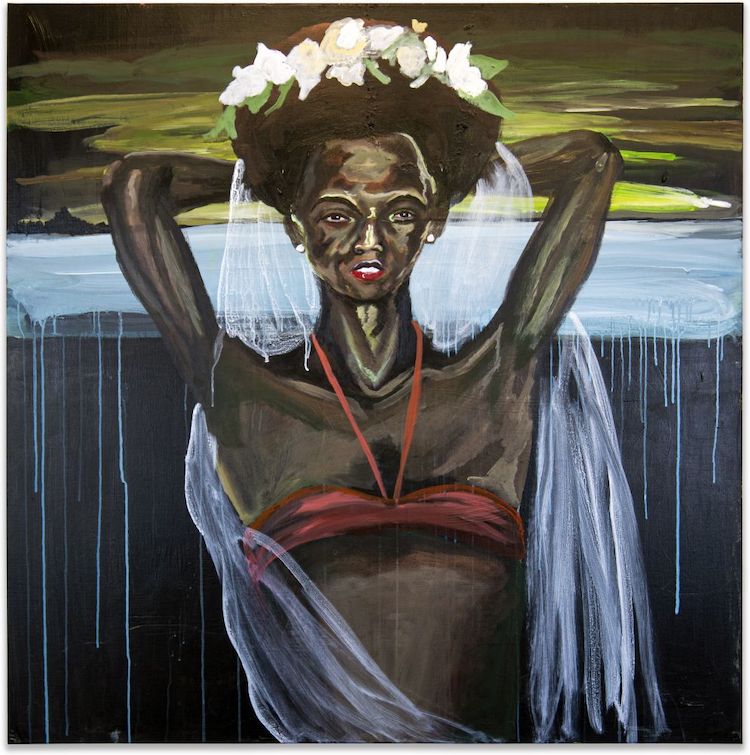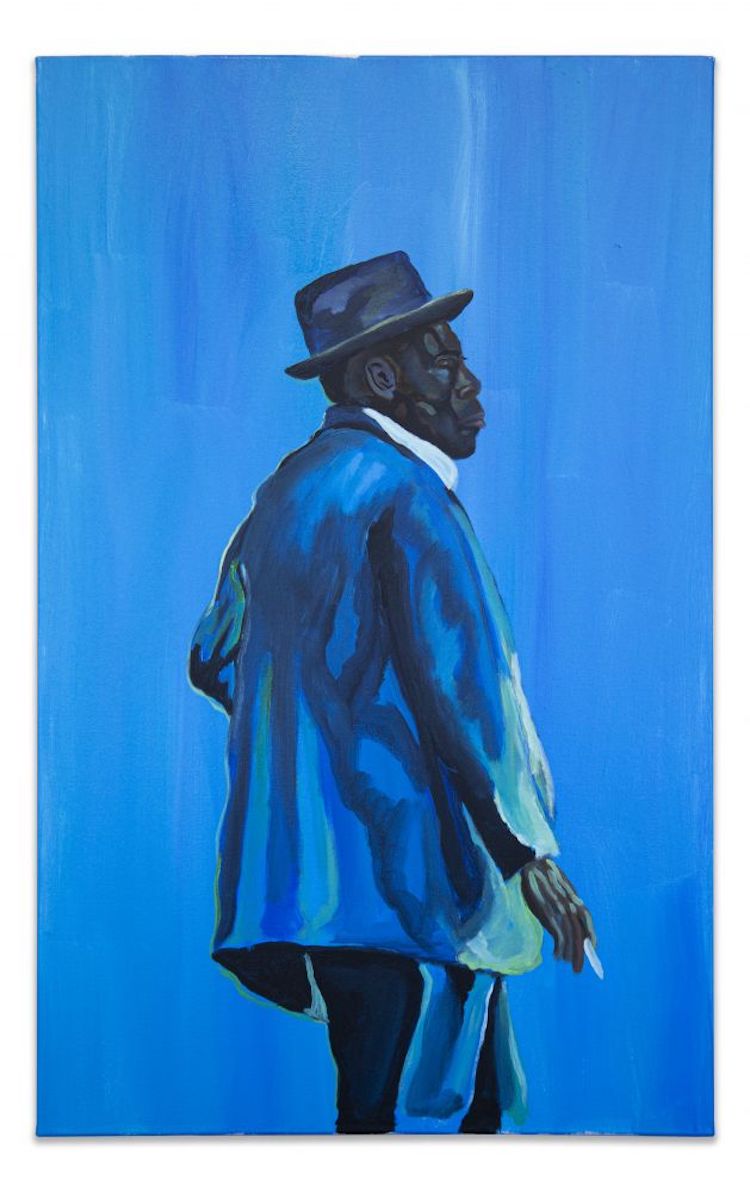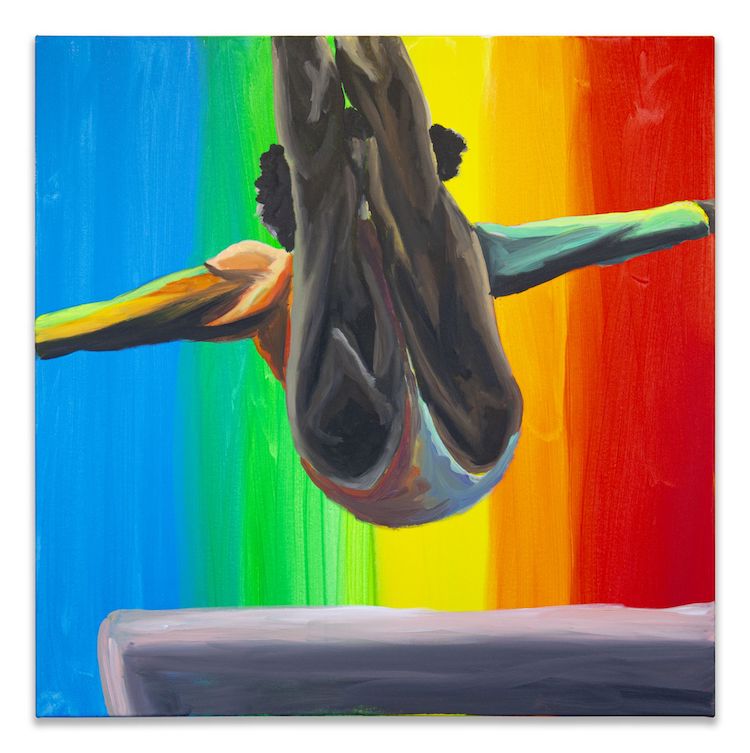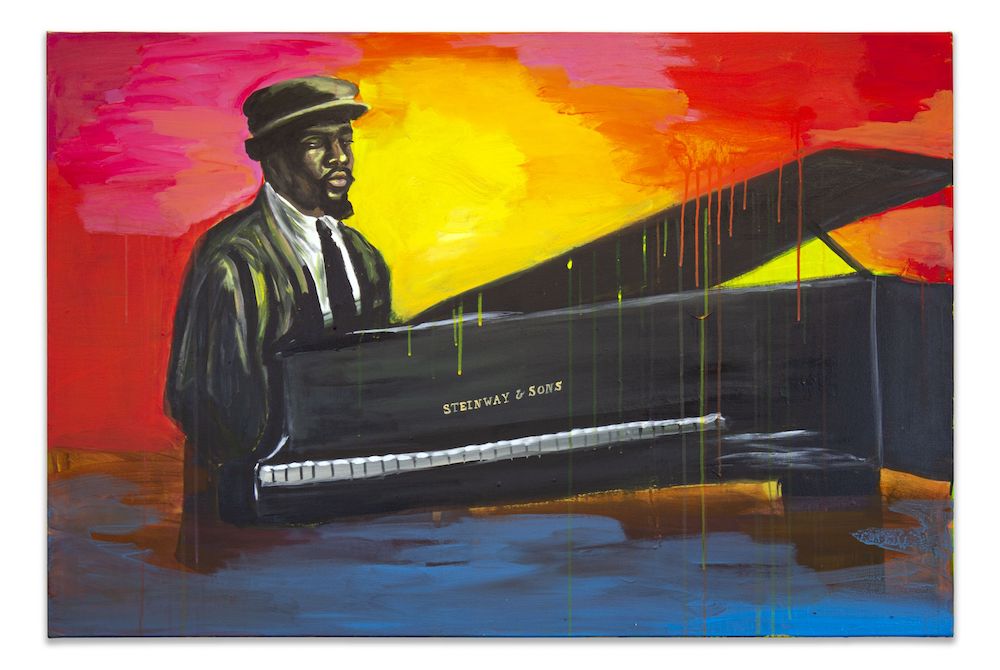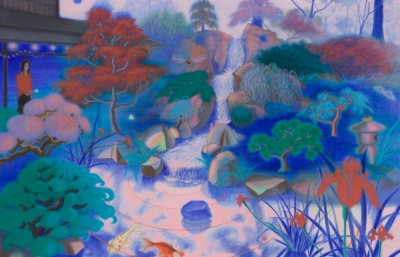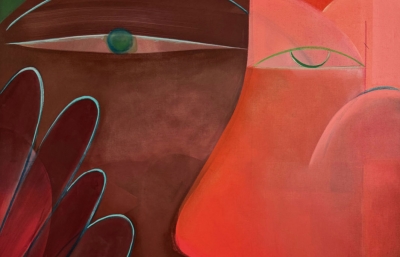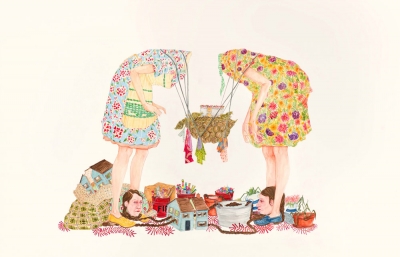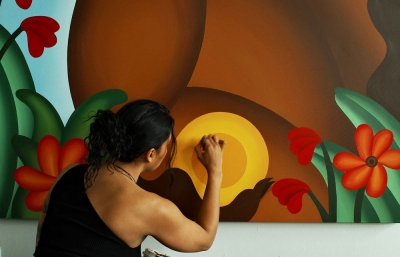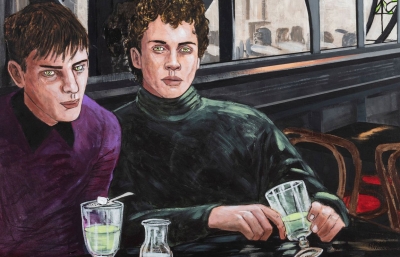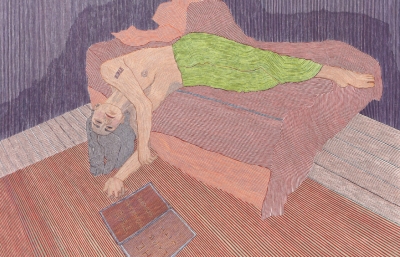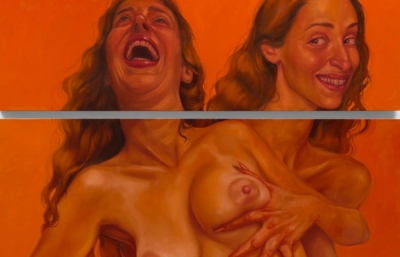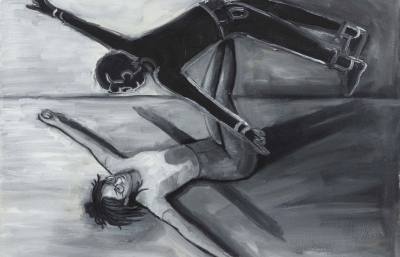“Imagine someone made a painting after watching Tiger King,” Marcus Brutus mused during our discussion on Radio Juxtapoz. “That feels like 10 years ago.” We were talking about what it means to be a painter, a figurative one at that, in times of crisis or social change, and how whatever is happening outside his studio affects the work he makes inside. One of the things I love about Marcus and his works is the patience exuded, both in himself and in the paintings themselves. The people in the work feel calm and collected. There is an aura of life just ... happening. Observant, yes, but Brutus has a way of capturing the in-between moments so vividly eloquent that you almost miss when he paints an iconic person or just reminisces about a long ago beach trip. Nostalgia and patience and the everyday: it’s a beautiful thing.
Marcus Brutus’s new solo show, The Truth That Never Hurts, recently opened with Harper’s Books in East Hampton, New York, the artist’s third solo show with the gallery. Brutus is the debut showcase in the gallery’s new adjacent space to their existing storefront at 87 Newtown Lane, and this young artist is The One to kick it off. Brutus named his show after the collection of writings from Barbara Smith entitled The Truth That Never Hurts: Writings on Race, Gender, and Freedom. Smith herself was a groundbreaking Black feminist writer who challegend preconceived ideas on race, class, sexuality, and gender in her works for decades, and in many ways, Brutus challenging these same ideas in his own work, much of it around the idea of how Black American is perceived in everyday moments. Again, this is where his ability to convey leisure and relaxation so brilliantly, cooped with an adoption of abstraction in some of the newer works, seems to convey that sense of unease that has dominated our consciousness for much of the last 3 years—and especially the year that has been 2020.
The 13 new paintings were all created while Brutus was sheltered-in-place in Queens this past Winter and Spring, and as much as Brutus himself doesn’t like to be literally reactionary in his works, there is something special that these works were made in a specific form of isolation. That they don’t evoke some Tiger King or Tulsa shitshow is what makes them remarkable. They are life as it is, the moments that often just pass us by. That is historical in itself. —Evan Pricco
Read our full interview with Marcus from the Spring 2020 issue










